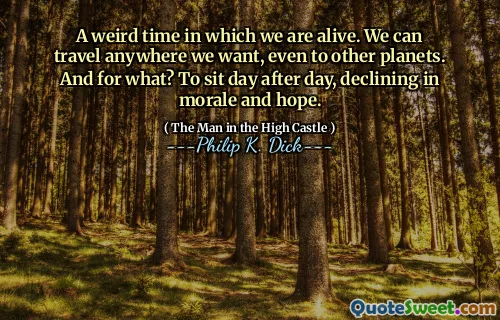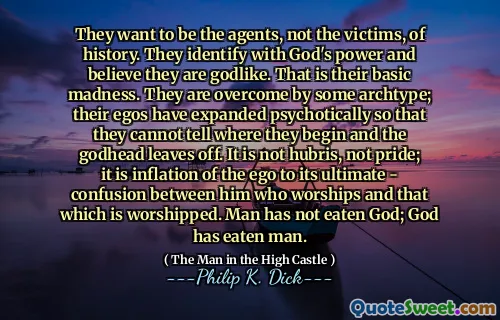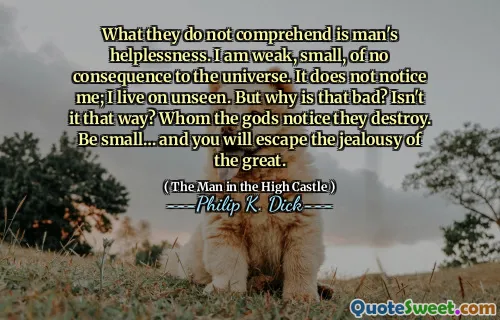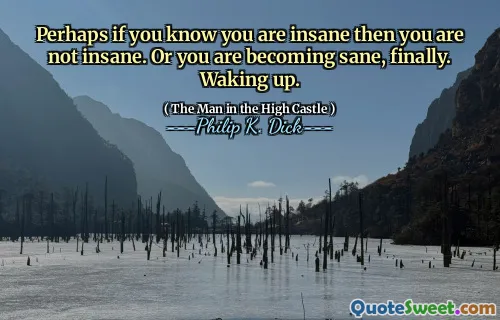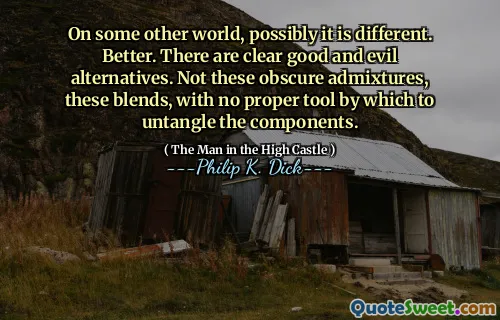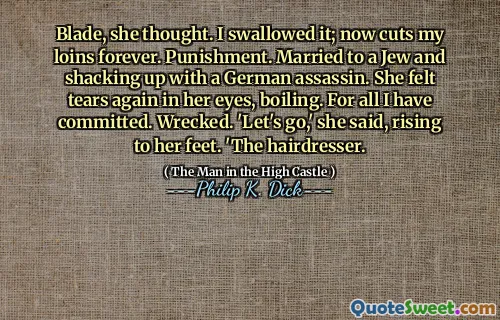
Blade, she thought. I swallowed it; now cuts my loins forever. Punishment. Married to a Jew and shacking up with a German assassin. She felt tears again in her eyes, boiling. For all I have committed. Wrecked. 'Let's go,' she said, rising to her feet. 'The hairdresser.
In the novel "The Man in the High Castle," a character grapples with deep feelings of guilt and despair. She reflects on her complex relationships, feeling trapped by her choices, including her marriage to a Jewish man and her affair with a German assassin. The metaphor of a blade signifies the pain and consequences of her actions, leaving her emotionally wounded. As tears well up, she confronts her internal turmoil but decides to move forward, indicating a need for distraction or a break from her heavy thoughts. She resolves to visit the hairdresser, showing a desire to change her appearance or perhaps her state of mind amidst the chaos of her life.
In the novel "The Man in the High Castle," a character grapples with deep feelings of guilt and despair. She reflects on her complex relationships, feeling trapped by her choices, including her marriage to a Jewish man and her affair with a German assassin. The metaphor of a blade signifies the pain and consequences of her actions, leaving her emotionally wounded.
As tears well up, she confronts her internal turmoil but decides to move forward, indicating a need for distraction or a break from her heavy thoughts. She resolves to visit the hairdresser, showing a desire to change her appearance or perhaps her state of mind amidst the chaos of her life.
